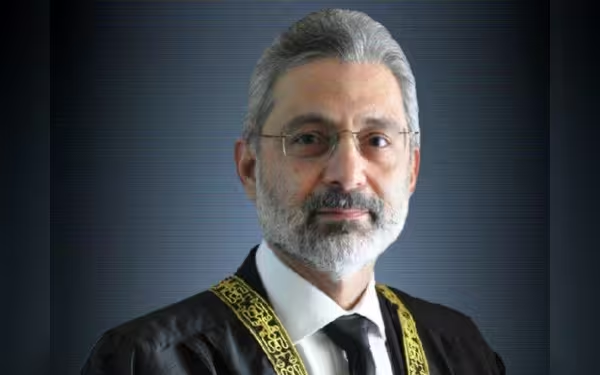Saturday, November 16, 2024 07:44 PM
Judicial Discord in Pakistan: CJP Isa and Justice Akhtar's Rift
- Judges' relationships in Pakistan's judiciary deteriorate.
- CJP Isa's proactive approach faces opposition.
- Unity in judiciary is crucial for public trust.
 Image Credits: tribune.com.pk
Image Credits: tribune.com.pkThe relationship between judges in Pakistan's judiciary has deteriorated, raising concerns about unity and public trust.
The relationship between judges in Pakistan's judiciary has reached a concerning low, particularly highlighted by the ongoing tensions surrounding Chief Justice Qazi Faez Isa. Known for his proactive approach, CJP Isa has a history of addressing various issues through letters during the tenures of his predecessors. This practice has continued since he assumed the role of the top judge of the Supreme Court.
One significant point of contention arose when Justice Munib Akhtar, a member of the Supreme Court, was among the minority judges who dismissed CJP Isa's review petition. This dismissal has not only sparked debates within legal circles but has also raised questions about the unity and coherence of the judiciary as a whole.
The implications of such a rift are profound. A judiciary that operates in harmony is essential for upholding the rule of law and ensuring justice is served fairly. When judges are at odds, it can lead to public distrust in the legal system, which is already facing scrutiny in various aspects. The public looks to the judiciary as a pillar of democracy, and any signs of discord can undermine that trust.
As the situation unfolds, it is crucial for the judiciary to reflect on its internal dynamics. The relationship between judges should ideally be one of collaboration and mutual respect, as this fosters a more effective legal system. Moving forward, it is imperative for the judiciary to address these issues transparently and work towards rebuilding trust among its members and the public.
The current state of relations among judges, particularly between CJP Isa and Justice Akhtar, serves as a reminder of the importance of unity within the judiciary. A cohesive judicial body is vital for maintaining the integrity of the legal system in Pakistan. As citizens, we must remain vigilant and hopeful that the judiciary will find a way to resolve its differences for the greater good of justice and democracy.













